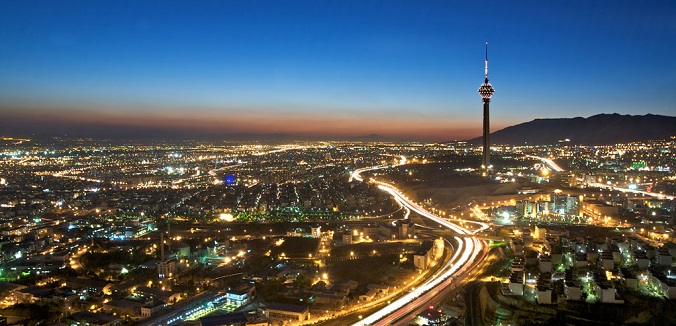Multiple outlets and analysts are assessing that the West’s reduction of sanctions on Iran, implemented on Monday per the Joint Plan of Action (JPA) agreed to by the P5+1 global powers and Tehran, has triggered a “gold rush” into the Islamic republic as companies and nations scramble not to be left behind as the country’s markets are reopened to the world. The phrase is an explicit echo of statements made by Vienna-based Iranian business consultant Bijan Khajehpour and conveyed by Reuters, in which Khajehpour described a “gold rush” mood in Tehran that has Russia and China rushing to lock in oil-based barter deals before Western companies penetrate the Iranian energy sector.
Iranian officials want to orchestrate a race between European competitors – and eventually U.S. corporations – for the best deals. However, most of these can be struck only if sanctions go altogether under a final settlement. “American companies are very eager to enter Iran’s market, from car manufacturers to aircraft makers,” a senior official told Reuters on condition of anonymity. “They are preparing the ground for the time when the sanctions are lifted.” Among the most promising sectors in the short term are autos, pharmaceuticals, food and consumer goods, Khajehpour said, with oil and gas production and technology and aircraft the biggest longer-term prospects.
The Wall Street Journal contrasted assurances from the Obama administration emphasizing that sanctions relief was limited with evidence that a “growing number of European governments and businesses [are] moving to cash in on the opening created by the interim agreement.”
The concessions to Tehran, the White House says, are “limited, temporary, targeted, and reversible.” The mullahs beg to differ—and so do the growing number of European governments and businesses moving to cash in on the opening created by the interim agreement. In the two months since the accord was struck in Geneva, Tehran’s trading partners have lifted sanctions, sent delegations, agreed to export deals and signaled their readiness to expand ties across nearly every major industry.
Mark Dubowitz and Emanuele Ottolenghi – respectively the executive director of the Foundation for Defense of Democracies (FDD) and a senior fellow at the foundation – noted in Politico yesterday that the “gold rush” is partly a function of a psychological change that has seen “greed… overcome fear,” with the improved economic climate already generating “some illegitimate deals as companies test the waters.” Reuters reported yesterday that Iranian oil sales rose in January for the third consecutive month, and tomorrow Iranian President Hassan Rouhani is to address global business leaders and urge them to pursue further energy co-development deals. The Korea Trade-Investment Promotion Agency meanwhile announced Tuesday that it will resume trade with Iran, cracking open a market that had in the past seen robust trade in auto exports and energy. The degree to which Iran benefited economically from the JPA has both diplomatic and policy stakes. Diplomatically, the loss of U.S. leverage will make it difficult to pressure Iran into verifiably putting its nuclear program beyond use for nuclearization. Politically, evidence of such a loss is likely to deepen calls for Congress to pass legislation imposing new sanctions on Iran should negotiations over Tehran’s nuclear program fail, a move that proponents insist would boost the bargaining position of U.S. negotiators.
[Photo: Sam Anvari / Flickr ]




